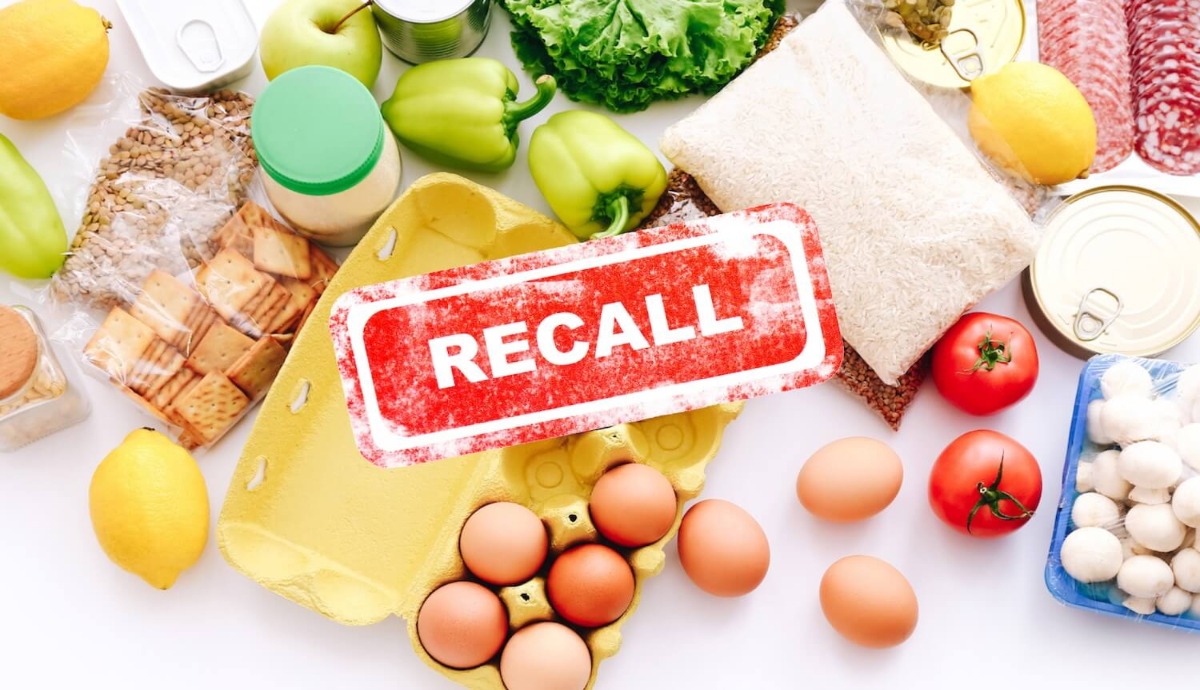Safeguarding Businesses In The Food Industry: Mitigating Product Recall Costs Due To Food Mislabelling
February 10, 2024

Keywords: Food industry challenges, Food mislabelling, Food business risks, Product recall costs, Risk mitigation strategies, Food labelling accuracy, Regulatory compliance
Introduction:
In the dynamic landscape of the food industry, businesses face a myriad of challenges, and one such critical concern is food mislabelling. This pervasive issue can have far-reaching consequences, posing a substantial risk to companies striving to maintain consumer trust and market integrity. Mislabelling occurs when food products are incorrectly or misleadingly labelled, leading to potential health hazards and legal complications. Among the specific risks within this realm, the focus lies on the considerable costs associated with product recalls. When mislabelled products reach the market, businesses incur substantial financial losses, along with the damaging impacts on their brand reputation. In this article, let us explore the specific risks of product recall costs due to food mislabelling and examine effective mitigation strategies to safeguard businesses in this ever-evolving landscape.
What are the Implications of Mislabelling?
Accurate labelling plays a pivotal role in the success and sustainability of businesses operating in the food industry. However, when mislabelling occurs, businesses face a range of significant risks that can impact their bottom line and brand reputation. Some of the key risks associated with mislabelling include:
Statutory Fine: Regulatory bodies impose hefty fines on companies found guilty of mislabelling, which can have severe financial implications.
Packaging Cost: Correcting mislabelled products often requires repackaging, leading to additional expenses and wastage.
Investigation Cost: Companies must invest resources in investigating the root cause of mislabelling, including conducting internal audits and cooperating with regulatory authorities.
Knowledge Cost: Mislabelling incidents necessitate staff training and education to prevent future occurrences, increasing overall costs.
Brand Reputation: Mislabelling can tarnish a company's reputation, eroding consumer trust and resulting in diminished sales and market share.
Among these risks, product recall costs stand out as a significant concern. When mislabelled products reach the market, businesses may be compelled to recall their products to rectify the issue, mitigate potential health risks, and comply with regulatory requirements. The financial burden of such recalls encompasses not only the cost of retrieving and replacing the affected products but also the expenses associated with communication, logistics, disposal, and potential legal repercussions.
Understanding Product Recall:
Product recalls are initiated when a company becomes aware of a product defect or hazard that poses a risk to consumers and can be initiated by the company itself through proactive monitoring and testing, or they can be enforced by regulatory agencies based on consumer complaints, adverse event reports, or independent investigations. The reasons behind product recalls can vary, ranging from contamination, allergen mislabelling, incorrect or inadequate product instructions, to undeclared or incorrect ingredients.
Mislabelling, specifically, refers to situations where product labels inaccurately represent the contents or attributes of the product, leading to potential health risks or consumer deception.
Financial Implications of Product Recall:
Product recalls, particularly those associated with mislabelling, can have significant financial implications for businesses. Not only do they incur direct costs, but they can also lead to reputational damage and loss of consumer trust. Let us understand the steps involved in product recall in the light of guidelines provided by the FSSAI, along with the cost implications and associated risks of each step involved.
1. Assemble the Recall Management Team:
Cost Implication: Allocating personnel and resources to form a recall management team may incur additional expenses such as diverting staff from regular roles or hiring external consultants.
Risk: Inadequate expertise or coordination within the team can lead to delays, errors, and ineffective management of the recall process, resulting in prolonged recall duration and potential harm to the business reputation.
2. Notify the Authority:
Cost Implication: Delays or failures in notifying the regulatory authority can result in penalties, fines, or legal consequences, leading to significant financial liabilities for the business.
Risk: Inaccurate or incomplete information provided to the authority may lead to misinterpretation or inadequate assessment of the recall situation, further prolonging the recall process, escalating costs, and potentially damaging the company's reputation.
3. Identify all products to be recalled:
Cost Implication: Thoroughly identifying affected products can be resource-intensive, involving investigations, testing, and product tracing efforts that increase operational costs and may disrupt regular business activities.
Risk: Incomplete identification of affected products may result in incomplete recalls, leaving potentially unsafe products in the market. This can lead to further liabilities, compromised consumer safety, and reputational damage.
4. Detain and segregate recalled products:
Cost Implication: Temporarily detaining and segregating recalled products requires additional storage space and resources, potentially increasing warehousing costs, especially for significant volumes or specialized storage conditions.
Risk: Inadequate segregation may inadvertently lead to the distribution of recalled products, resulting in legal liabilities, consumer harm, and further financial repercussions.
5. Prepare and distribute recall information:
Cost Implication: Preparing and disseminating recall information incurs costs such as content creation, translation services, media placements, call center operations, and customer support.
Risk: Ineffective or delayed communication can hinder consumer awareness and response, prolonging the recall process, and amplifying negative publicity. This can lead to reduced consumer trust and long-term financial consequences.
6. Prepare the distribution list:
Cost Implication: Creating a comprehensive distribution list requires meticulous record-keeping and coordination efforts, potentially requiring additional administrative resources, specialized software, or services.
Risk: Incomplete or inaccurate distribution lists may result in missed notifications to affected parties, leading to potential product retention and distribution of unsafe goods. This can result in prolonged recalls, increased costs, and damage to brand reputation.
7. Verify the effectiveness of the recall:
Cost Implication: Monitoring and evaluating the recall progress involve resources dedicated to tracking product recovery, conducting follow-ups, and preparing status reports, contributing to overall recall costs.
Risk: Inadequate verification may result in incomplete product recovery or ineffective recall closure. This can lead to prolonged consumer exposure to unsafe products, potential legal liabilities, and significant financial repercussions.
8. Control the recalled products:
Cost Implication: Establishing proper control measures for recovered products, including storage, tracking, and disposal, may incur additional handling costs, specialized logistics, and compliance with environmental regulations.
Risk: Insufficient control measures may lead to accidental reintroduction of recalled products into the market, amplifying liabilities, compromising consumer health, and damaging the business reputation.
9. Decide what to do with the returned product:
Cost Implication: Determining the appropriate action for recalled products, such as correction, reprocessing, or destruction, incurs costs. Correcting or reprocessing products may require additional resources, while destruction involves expenses related to waste management and compliance.
Risk: Inadequate decision-making regarding product disposition can result in ineffective corrective actions or disposal processes, leading to further risks, including potential consumer harm, legal consequences, and long-term financial repercussions.
10. Fix the cause of the recall:
Cost Implication: Identifying and addressing the root cause of the recall necessitates investments in process improvements, quality control measures, training programs, and equipment upgrades. These initiatives require financial resources but can help prevent future recalls and associated costs.
Risk: Failure to address the underlying cause may result in recurring issues, subsequent recalls, and amplified financial consequences. It can also damage the company's reputation, erode consumer trust, and affect market competitiveness.
Read the entire Guideline: Food Safety and Standards (Food Recall Procedure) Regulation, 2017 | FSSAI
Strategies of Risk Mitigation:
As we know now, that every step of product recall can pose risk to food businesses, thus in order to mitigate these risks, businesses need to adopt proactive measures and leverage innovative solutions:
1. Implement Robust Quality Control Systems:
Establish stringent quality control processes throughout the supply chain to ensure accurate labelling.
Conduct regular inspections, testing, and audits to verify compliance with labelling requirements.
By maintaining high labelling accuracy, the likelihood of food recalls due to mislabelling errors is significantly reduced, saving costs and protecting consumer health.
2. Enhance Supplier Verification and Transparency:
Thoroughly vet suppliers based on their track record for accurate labelling and regulatory compliance.
Digitized supplier management systems streamline the verification process, ensuring transparency and reducing the risk of receiving mislabelled ingredients.
Strengthening the supplier base minimizes the chances of incorrect labelling and associated product recalls.
3. Utilize Innovative Technologies and Digitized Solutions:
Embrace AI-powered technologies to automate labelling processes, improving accuracy and reducing human errors.
Digitized label management systems ensure real-time monitoring, enabling quick identification and rectification of any labelling discrepancies.
By digitizing labelling operations, businesses minimize the chances of recalls due to manual errors, ensuring consistent compliance and cost efficiency.
4. Strengthen Regulatory Compliance Measures:
Adopt AI-led compliance management systems to ensure adherence to evolving labelling regulations.
AI solutions can automatically monitor and analyze labelling data, flagging any non-compliance issues for swift corrective action.
By leveraging AI for regulatory compliance, businesses minimize the risk of non-compliance, regulatory penalties, and the need for costly recalls.
To ensure absolute regulatory compliance and streamline labelling requirements, a comprehensive solution like FoLSol® is essential. FoLSol® serves as a one-stop solution for all food labelling needs, offering powerful software to create compliant labels from scratch and validate existing labels. Its advanced features validate permissible ingredients and additives, limits, mandatory declarations, warnings, nutrient claims, date formats, and other intricate labelling aspects. By adopting FoLSol®, businesses can achieve unparalleled labelling accuracy, enhance compliance, and gain consumer trust, paving the way for long-term success in the dynamic food industry.
About LabelBlind®
Established in 2018 and based in Mumbai, LabelBlind® specialises in the area of Digitising Food Labelling and Regulatory Compliance. FoLSol® by LabelBlind® presents India’s 1st Digital Food Labelling Solution. The SaaS platform supports Food Businesses to be Labelling Compliant and Build Consumer Trust. FoLSol® by LabelBlind® is designed to strengthen the food labelling ecosystem across a wide spectrum of services including, Packed Food Labelling, Menu Labelling, Exports Labelling, Nutraceuticals and Food Supplements Labelling and Labelling for Ecommerce players. FoLSol® Digital Food Labelling Solution is fast, accurate, and cost effective. The company is ISO9001 certified in its processes.
References

Layeba Siddique (MSc Nutraceutical)
Layeba has a passion for exploring innovative applications of technology in the space of food science. Additionally, she has a profound fascination for space exploration.
